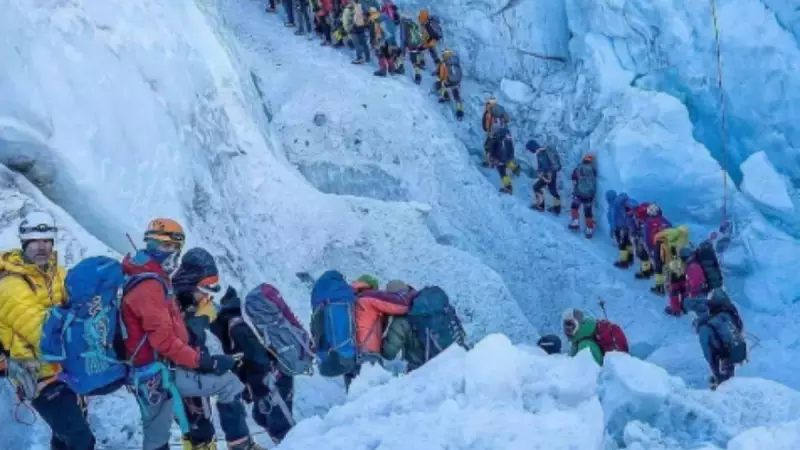
From Everest Pioneer to Antarctic Guardian
One of Australia's first Mount Everest conquerors has spoken out against the modern commercialisation of the world's highest peak, describing recent images of crowded climbing routes as devastating. Greg Mortimer, who made history alongside fellow Australian Tim McCartney-Snape in October 1984 by scaling Everest without supplemental oxygen, told 7NEWS.com.au he's witnessed a seismic shift in mountaineering culture.
"Those photos of queues going up to the top of Everest are devastating," Mortimer stated. "I think that's one of the saddest photos in mountaineering history, really. How we've commodified Everest."
Transforming Tourism in Earth's Last Wilderness
Decades after his groundbreaking Everest ascent, when he experienced the summit completely alone, Mortimer has redirected his passion toward protecting the planet's most fragile environments. Through his expedition company Aurora Expeditions, founded with his wife Margaret, he's pioneering environmentally sustainable tourism in Antarctica.
The former geologist, who spent five years living in Antarctica's Ross Sea region, fell in love with the continent during early tourist voyages. "The combination of having a nice ship to play with, having adventurous people in tow and being able to explore and see the ends of the Earth," Mortimer explained. "That cocktail impacts on people and impacts on me as well."
Cutting-Edge Sustainability on the Southern Seas
Four decades after his Everest triumph, environmental sustainability has become fundamental to Aurora's operations aboard their ship, the Douglas Mawson. The company has integrated groundbreaking technology to minimise their footprint in the pristine polar region.
Aurora Expeditions has partnered with two innovative startups to enhance their environmental performance:
- Countercurrent from UNSW uses satellite data and artificial intelligence to plot the most fuel-efficient sailing routes
- UK-based CleanerSeas filters up to 99 percent of microfibres from onboard washing machines
"It's absolutely fundamental to me and to Aurora Expeditions that we are mindful and improving our environmental footprint," Mortimer emphasised. "I think we're at a stage if the tourist industry does not do that, they'll go broke."
Creating Environmental Ambassadors Through Experience
Beyond reducing their direct environmental impact, Aurora's mission focuses on transforming passengers into advocates for sustainability. The company's citizen science program enables travellers to contribute to genuine research, including photographing whale flukes for migration studies and collecting phytoplankton data for NASA.
"I think of Aurora now as dropping thousands and thousands of pebbles in ponds with each passenger," Mortimer described. "If an individual passenger comes to Antarctica and feels their small place in the world and realises what their environmental impact is and takes that home and reduces their environmental impact by 50 percent, that's a big deal."
Sea kayak guide Eamond Larkin, who has completed seven Antarctic seasons with Aurora, noted that the experience of "getting close to nature" and encountering "absolute silence" forges deep connections with visitors.
Mortimer's push for responsible polar tourism comes at a critical time, with microplastics and microfibres now detected in snow and ice samples from the Arctic to Antarctica, highlighting the urgent need for sustainable travel practices in these remote ecosystems.





